Check the spark plug gap using a wire gap gauge, and adjust if necessary.
Standard value |
Spark plug gap : 1.0-1.1 mm (0.039-0.043 in.) |
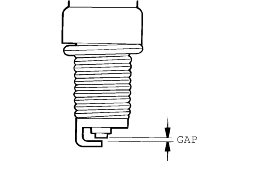
Separate the connector located under the steering column.
Inspect the switch continuity between the terminals.
If continuity is not as specified, replace the switch.
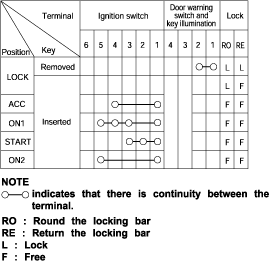
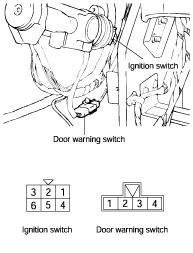
Remove the spark plug and reconnect it to the spark plug cable.
Ground the spark plug outer electrode and crank the engine.
Verify that there is an electrical discharge between the electrodes.
When replacing the spark plug, use a resistor type.
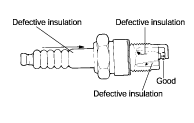
Disconnect one at a time each of the spark plug cables while the engine is idling to check whether the engine's running performance changesor not.
Spray a fine mist of water on the secondary wires to observe any flashover.
Wear rubber gloves while operating.
If the engine performance does not change, check the resistance of the spark plug, and check the spark plug itself.
Check the cap and outer shell for cracks.
Measure the resistance.
Spark plug cable (KΩ) | |||||
No. 1 | No. 2 | No. 3 | No. 4 | No. 5 | No. 6 |
4.39 ~6.59 | 2.28 ~ 3.43 | 3.49 ~5.24 | 1.9 ~2.86 | 3.25 ~ 4.87 | 1.3 ~ 1.95 |
Resistance should not be higher than 10,000Ω-per foot of cable. If resistance is higher, replace the cable.
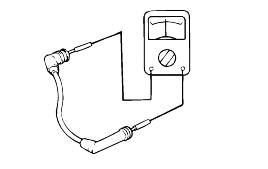
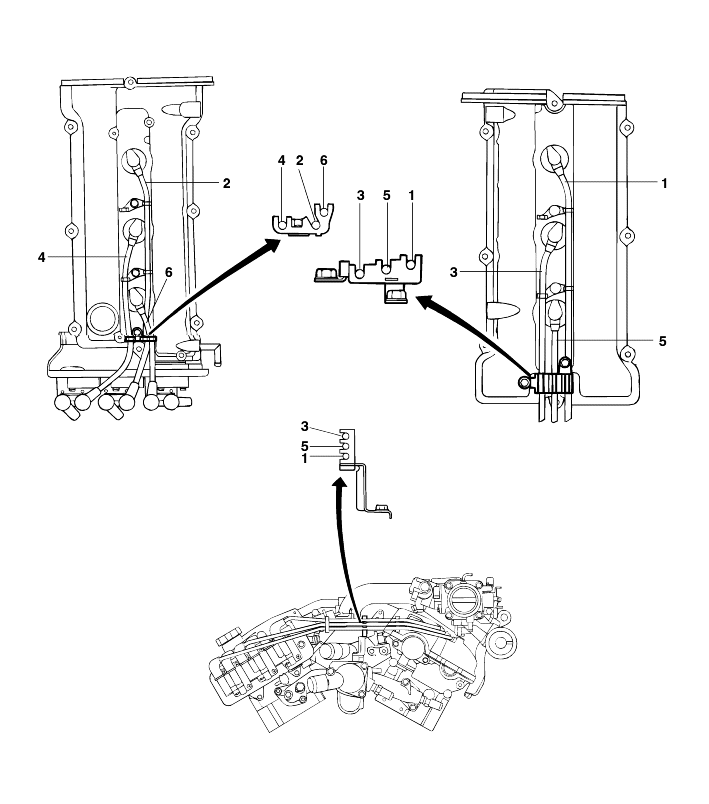
Separate the connector located under the steering column.
Inspect the switch continuity between the terminals.
If continuity is not as specified, replace the switch.


Remove the spark plug and reconnect it to the spark plug cable.
Ground the spark plug outer electrode and crank the engine.
Verify that there is an electrical discharge between the electrodes.
When replacing the spark plug, use a resistor type.

Disconnect one at a time each of the spark plug cables while the engine is idling to check whether the engine's running performance changesor not.
Spray a fine mist of water on the secondary wires to observe any flashover.
Wear rubber gloves while operating.
If the engine performance does not change, check the resistance of the spark plug, and check the spark plug itself.
Check the cap and outer shell for cracks.
Measure the resistance.
Spark plug cable (KΩ) | |||||
No. 1 | No. 2 | No. 3 | No. 4 | No. 5 | No. 6 |
4.39 ~6.59 | 2.28 ~ 3.43 | 3.49 ~5.24 | 1.9 ~2.86 | 3.25 ~ 4.87 | 1.3 ~ 1.95 |
Resistance should not be higher than 10,000Ω-per foot of cable. If resistance is higher, replace the cable.

Disconnect the spark plug cable from the spark plug.
Pull on the spark plug cable boot when removing the spark plug cable, not the cable, as it may be damaged.
Using the spark plug wrench, remove all of the spark plugs from the cylinder head.
Take care not to allow contaminants to enter through the spark plug holes.
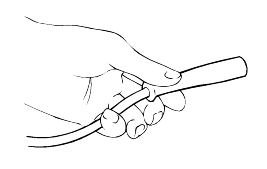
Check the spark plugs for the following:
Broken insulator
Worn electrode
Carbon deposits
Damaged or broken gasket
Condition of the porcelain insulator at the tip of the spark plug (carbon tracking)
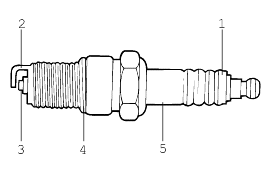
Check the spark plug gap using a wire gap gauge, and adjust if necessary.
Standard value |
Spark plug gap : 1.0-1.1 mm (0.039-0.043 in.) |

Re-insert the spark plug and tighten to the specified torque. If it is overtorqued, damage to the threaded portion of cylinder head may result.
Tightening torque |
Spark plug : 20-30Nm (200-300kg·cm, 15-22 lb·ft) |
When replacing the spark plug, use resistance plugs.